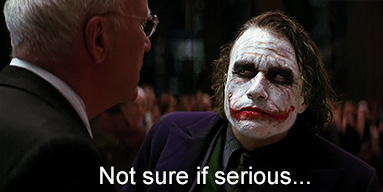Art isn't completely subjective, that is an agenda that we have been propagandized to believe because it suits empty consumerism.
The measure of art in the past was
'authenticity', i.e. how well the art reflects some aspect of reality, or the human condition.
Art's job was to convey eternal truth, whether that was soaring heroism in some classical soundtrack, or tenderness, or tragedy.

So art raises our consciousness. A piece of wallpaper with a funny pattern on is decoration, not art. A piece of art can be abstract to some degree, but I would argue it must still be understandable to others or else it fails. You can represent something eternally true in a symbolic way, such as how Jung said our mythology conveyed psychological truthes. The Greeks believed that outward beauty reflected inward virtue, and when you examine this, it holds up well for art; the beauty of something is a judge of the truth of it and virtue of the message. It may be that art requires spirituality of some kind, whether secular spirituality based on cosmic science, or a traditional belief system, because absolute relativism only produces ugliness, and spirituality engenders a belief that there is a natural order. Even the earliest cave art, for example, carried meaning and truth for those communities, possibly representing their reverence for the prey they hunted, and how they depended upon animals for everything in a bittersweet relationship of respect for the animal they had to kill.
This is art:
This is not art:
Star Wars is a work of popular culture which explores the eternal truth surrounding war, ego, fear, heroism, tragedy and hope. It's imperfect, but it's earnest. It employs mythological symbolism going back to the dawn of humanity, Christian, Buddhist, Greek, Norse, Hindu, Japanese and Chinese. Star Wars' soundtrack is created by one of the finest composers of film scores. John William's 'Anakin's Betrayal' is an amazing piece of music for example. The second is just cynical deconstructionism with no higher loyalty to the truth or earnestness, and is ugly. Art which is ugly reflects the hangups of the author I believe. They can't see beauty, so they project this reality onto everything.

Polemic used to be especially warned against in art. Polemic is where you force a message, such as a political or social message, onto a piece of art, resulting in a dogmatic piece of propaganda for whatever you obsessively believe at the time, instead of allowing the full complexity of the truth to reveal itself. For example you might identify with a victimhood-based movement, but then be so polemical that you forget the truth that everyone suffers, not just your chosen few that you want to capture all attention and sympathy. It results in bad art that nobody wants to see, and relies on bad faith to draw an audience; never loyalty of the kind that franchises like Star Trek, Star Wars or Middle-Earth commanded. Invariably your dogma will be a simplification of reality, creating a kind of inauthenticity that is nauseating. Artists need to abnegate their egotism and desire to tell others what to believe, to be a good artist, because truth is beyond whatever opinion is fashionable, and the truth is unpalatable to ideology. Most Hollywood movies these days are infected by polemical ideological positions, and humanities graduates are often little more than activists for a given temporary dogma it seems.

Naturalism is an important concept. Naturalism means that a piece of art attempts to be true to the reality of the universe. This is a way of approaching authenticity. So you try to make something that has the mark of realism. Bear in mind that nature does not mean 'green things' as in popular understanding, it means 'the universe'. Hence 'natural sciences' include the study of black holes and quasars, i.e. reality. Carrying say a 10ft long sword that weighs 200kg, but then not being able to open a wooden door, takes people out of RPG's immersion little-by-little as a small example. Naturalism would be to construct a more coherent fantasy universe, that people can get lost in, and easily suspend their disbelief.
High naturalism:
Low naturalism:
I would argue, as I have here before, that a lot of modern JRPGs suffer from a lack of authenticity and naturalism. They can come off as performative and emotionally inauthentic. They can lack the degree of naturalism needed to justify the action on the screen in some coherent way. It becomes too much after a while. By all means, be cartoony, but the best cartoons justify themselves internally through coherency.





























